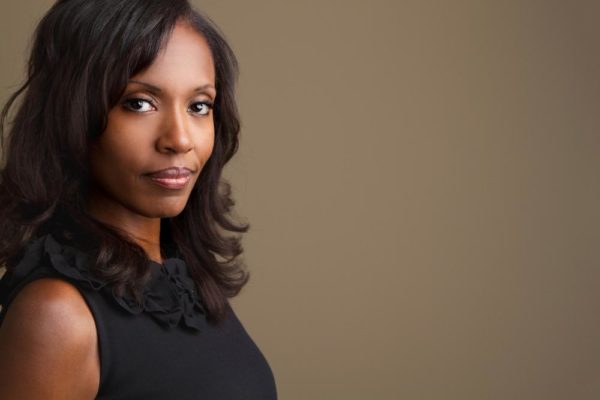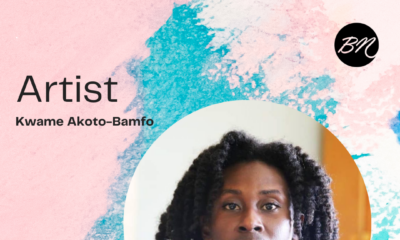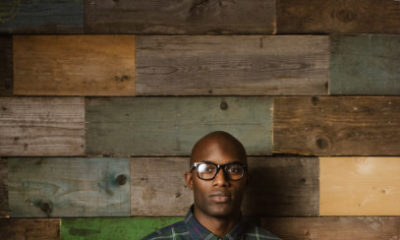Features
The Unvarnished with ‘Bimbola Adeluwoye: Repurposing Our Identity
 Over a period of many, many years, about 3000 tribes were colonized by 7 different countries. Some, by more than one country. These tribes spoke over 2000 languages and were later aggregated into the 54 far-flung states which now make up the continent. This is the birth story of Africa as we know it today. A people compelled to live together: first, by brute force; and now seemingly, by forced socio-economic consent.
Over a period of many, many years, about 3000 tribes were colonized by 7 different countries. Some, by more than one country. These tribes spoke over 2000 languages and were later aggregated into the 54 far-flung states which now make up the continent. This is the birth story of Africa as we know it today. A people compelled to live together: first, by brute force; and now seemingly, by forced socio-economic consent.
The Africa story is not unique. The United States of America was colonized by both Britain and Spain, almost at the same time. Most Americans are descendants of immigrants and revolutionists.
Britain itself was colonized by several peoples including the Celts, Romans, Normans, Vikings, Jutes, Angles and Saxons. They were also sold into slavery. It is reported that at one time, French was spoken as the language of the court in England. China, while not colonized in the strict sense of the word, was “ruled” by various European countries and Japan, as alleged in the “unequal treaties”.
The catch phrase “African solutions to African problems” was coined in 2007 by eminent economist, George Ayittey in response to the behaviour of the international community to the crisis in Somalia. He advocated ownership of solutions, saying that if you advocate your own solutions to your problems, you would have every reason and incentive to see them work.
First, as stated in the Report of the African Centered Solution for Peace and Security, there are many underlying assumptions in the discussion surrounding this. Primarily, it supposes the existence of shared African identity and values that can be reflected in the solutions.
This assumption is on very shaky legs. The concepts of ownership, commitment, and shared values which should be common grounds are almost alien to us. Our source of identity is highly internalized and very clannish. Between the Lou Nuer and Murle in South Sudan; Tutsi and Hutu in Rwanda; Tuaregs and Sub-Saharan black Africa, ethnic clashes abound.
In Nigeria, in the Memoranda submitted by the delegation to the ad hoc Conference on Constitutional Proposals for Nigeria, the Northerners put their stand this way: “We have pretended for too long that there are no differences between the peoples of this country. The hard fact we must honestly accept as of paramount importance in the Nigeria experiment, especially for the future, is that we are different peoples brought together by recent accidents of history. To pretend otherwise will be folly.” This was the attitude in 1967; and as those who try to forget the past are bound to relieve it, this is our reality today. It is now true just as Dr. Kingsley Moghalu stated, that we are a people of fragmented alliances.
The phrase “culture of poverty” was coined by Oscar Lewis in 1963. In it, he claimed that the culture of poverty prevents the poor from economic betterment despite social programs designed to assist them. That people learn to adapt to the values and norms that perpetuate poverty. We have an equality problem in the continent. There is a huge social and economic disadvantage that is often times never bridged throughout generations. If it is true, we need to break the psychological drawbacks. But most importantly, it is a restoration of our real fundamental human right, which is that we are worth it. So if these are our problems, how do we solve them?
In seeking to agree on an identity, and consequently take ownership, we need to start telling people who we are. Not another speech, not another book, not another symposium, but the African version of the very same institutions that have constantly set the continent back. I’m speaking of world-class solutions to improve our narrative such as a continental version of World Trade Centers; our version of Corruption Perceptions Index; Transparency International; World Bank Doing Business Index; and the CIA Fact Book.
We need to tell our own version of events. The aim is to create a structure where the continent is competitive within itself and not against itself. An inch or two up points up in the World Bank Doing Business Index a cause for celebration but is also a fertile ground for internalized racism. We need to see these strategies for what they are: neo-colonial chains which are used to “doctor” the pace of the continents growth.
In Malcolm Gladwell’s book “What the Dog Saw” the author noted that intelligence gathering has always been the problem of “noise”: the fact that useless information is vastly more plentiful than useful information. The perception of the continent both internally and externally has always been worse than its reality. Africa has always been depicted by gaunt, violent and sickly people on international television. Joseph Goebbels, of Adolf Hitler’s army once said that if you say something loud and long enough, no matter how preposterous it is, many people will start to believe it. Those pictures do not lie, but it is not the whole truth either. Nothing is peculiar to this continent, only the machinated foreign aids we receive; and as suggested by Joseph Stiglitz, in his book “Globalization and its Discontent’ hush money in the guise of foreign aid.
Advertisement guru, Rory Sutherland has said “things are not what they are, they are what they are what we compare them to”. So right now, when we compare an African country with some of the best in the world, the match is already flawed. You cannot compare a coconut to an orange even though both have juice. Although we live in a globally competitive world and our aim is to aspire to be among the best, we need to rate our strengths and weaknesses with a united front.
The Arab Boycott and the betrayal of decision by Charles de Gualle of France was a turning point in the history of Israel. It was this feeling of truly being alone as a country that galvanized its tech industry to what it is today. It is true that all African countries have become independent from their colonial rulers in the literal sense of the word. It is firmly believed that any clear claim to an identity and consequently ownership must begin with financial independence. This means the ability to say no to foreign aid. The African Union still receives, donations from the European Union and other donors. The continent must be able to help and support each other economically. We should take an inventory of each country’s resources and encourage continental import and production to boost our currencies.
We do not need to be pushed to this level of extremity before this solution, but then again, we may never truly know how self-reliant we can become as a continent when all we have left is each other.
Aspiration No.5 of the Agenda 2063 declares “an Africa with strong cultural identity, common heritage, values and ethics. Pan – Africanism and the common history, destiny, identity…” Aspiration 6 declares “an Africa whose development is people driven, relying on the potential of African people… Aspiration 7 declares “Africa as a strong united resilient and influential global partner and player”.
This is who we are.
Photo Credit: Noriko Cooper | Dreamstime





















